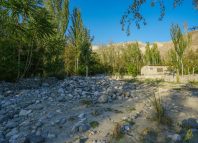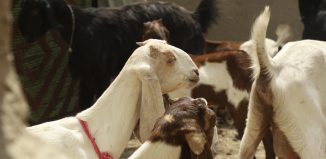Returnees in Crisis: How Extreme Winter is Exacerbating the Challenges and Risks of Displacement
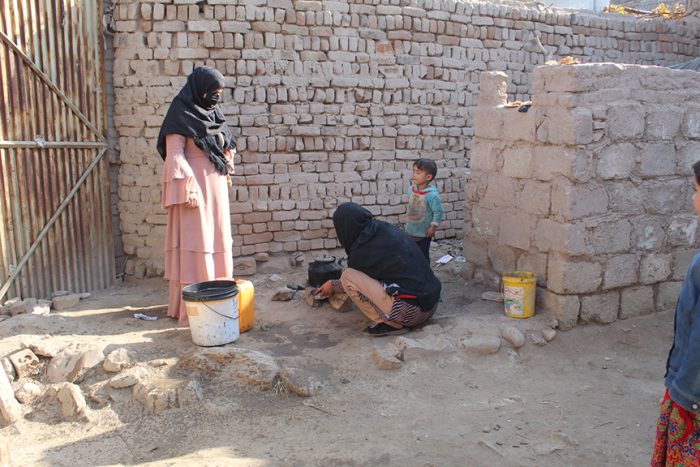
Following the Pakistan’s interim government announcement of the “Illegal Foreigners’ Repatriation Plan”, “illegal” Afghan refugees and migrants started returning back in November[1]. Arrivals back to Afghanistan are adding to an existing humanitarian crisis as the influx places additional pressure on already-strained resources, including shelter and basic services. As winter temperatures start to dip to -4°C in some locations, Afghan deportees are extremely vulnerable, particularly women and children are at risk of losing their lives in a harsh winter if left without adequate shelter. Approximately 720,000 undocumented individuals and 50,000 assisted Proof of Registration (PoR) card holders are expected to require support at border points through July 2024[2], according to an inter-agency Border Consortium Appeal launched in November 2023.[3]

The Pakistani government has imposed restrictions on deportees, requiring them to leave behind livestock and cash exceeding 50,000 rupees (about $175). The situation is marked by a complex interplay of government policies, human rights concerns, and the broader challenges faced by both Afghanistan and the deportees. The enforcement measures have raised international human rights concerns, and the situation is further complicated by the inadequate preparedness of Afghanistan to accommodate a large number of deportees amidst existing crises.

The harsh winter in Afghanistan is further exacerbating the conditions for more vulnerable groups like women, children, the elderly and the disabled. Without adequate shelter and winter accessories, many of them are likely to fall seriously ill or more severely, lose their lives. According to Gender in Humanitarian Action (GiHA) Working Group’s last report in December, 80% of the deportees are women and children, 48% are women and girls, and 13% are women heads of households. Due to displacement, separation, ongoing restriction on women in Afghanistan and an uncertain future, women returnees are feeling emotionally overwhelmed, requiring psychosocial support. Due to the existing barriers for women in Afghanistan, there is a risk of Women Headed Households to be excluded from assistance as they are harder to locate in their areas of return. Obstacles in accessing National Identity (ID) card (tazkera) are also further aggravating women’s lack of access to information and services.[4]

According to the latest IOM data[5],returnee women and men’s priorityneeds are similar with most wanting to access employment and requesting business start-up grants. Moreover, both women and men plan to be hosted by family members and report being concerned about becoming a burden to their families, who are already struggling to cope with the ongoing economic crisis.[6] Women remain particularly vulnerable as there’s a lack of appropriate WASH facilities at the border and there’s a severe shortage of women staff at the crossing points, putting women at an increased risk of Sexual Exploitation, Abuse and Harassment[7].
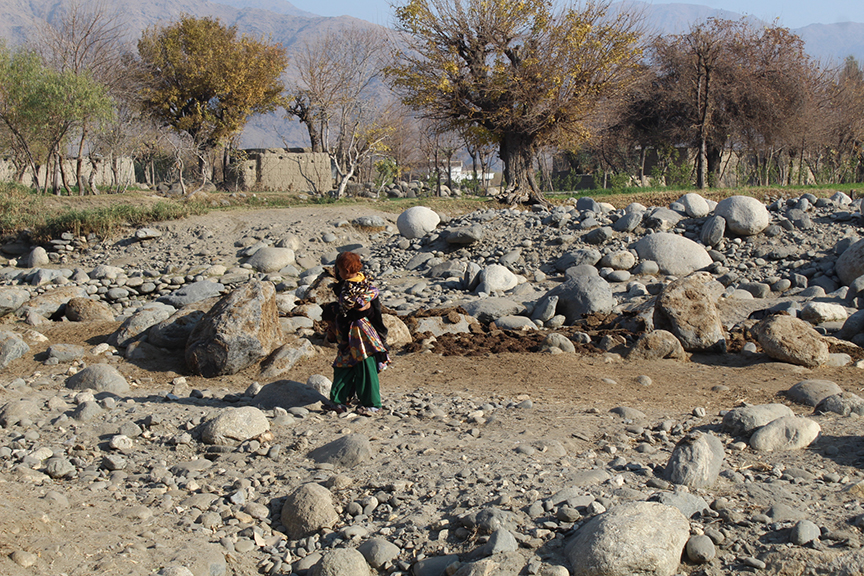
Multi Sectoral Need Assessment by Community World Service Asia
In January 2024, Community World Service Asia (CWSA) initiated its own Multi-Sectoral Need Assessment (MSNA) in Laghman and Nangarhar provinces, where most of the deportees have resettled. The objective of this assessment was to provide a comprehensive and evidence-based analysis of the humanitarian situation and needs of the affected communities returning from Pakistan.
According to the assessment’s preliminary findings, the deportation of Afghan nationals has left them more vulnerable to poverty and insecurity, preventing them from accessing basic needs like food, shelter, education, health, WASH, nutrition, livelihood, and protection. These affected communities are in urgent need of food, access to health care services, safe and clean drinking water, psychosocial support, and education.
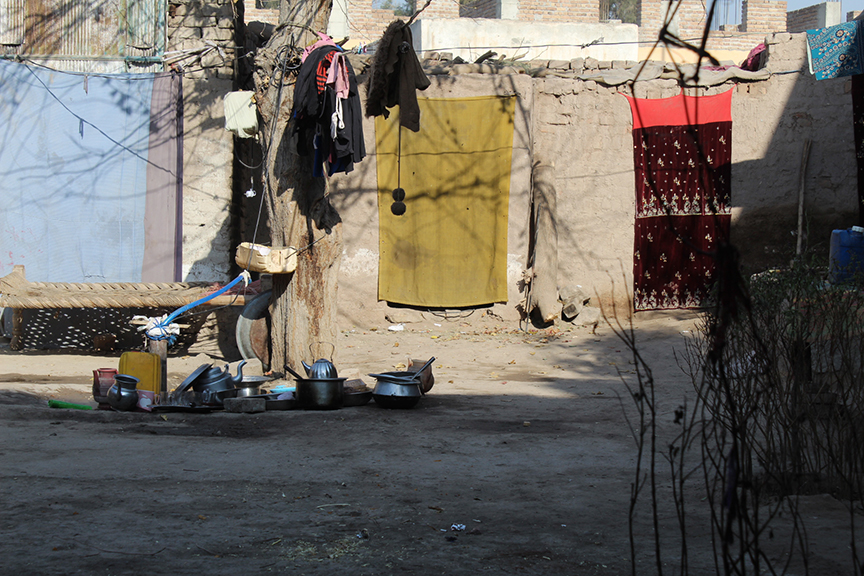
Returnee households are experiencing multiple vulnerability factors such as loss of property, prevalence of disability and poverty. Shelter has emerged as the foremost concern particularly for women and girls, and as the temperature drops, the prospect of survival without suitable housing and heating becomes increasingly unlikely. Immediate provision of safe and secure shelter to prevent gender-based violence, exploitation of children and exposure to extreme weather is crucial.
Access to essential healthcare services, including basic medicines, psychosocial support, medical check-ups, vaccinations, menstrual hygiene products, and treatment for existing health conditions is a pressing concern, putting women, children, elderly and PWDs at an increased risk. Long-term influence of emotional impact and absence of appropriate mental health care to those affected could result in several social issues.
Having lost their livelihoods and having handed over their savings while crossing the border, the deportees are in urgent need of cash to sustain themselves.
Urgent Needs of Returnee Community in Nangarhar & Laghman Province:
– Shelter
– Cash Assistance
– Food Assistance
– Immediate and long-term health care services
– WASH – Access to clean drinking water and hygiene facilities
– Winterization Kits & Heating Equipment
– Livelihoods
– Education
– Support with documentation & registration
Community World Service Asia Response:
Community World Service Asia (CWSA) is in close coordination with the provincial line departments and other relevant stakeholders in the province and Kabul. Our team in Afghanistan is in regular communication with and is engaged with active clusters and directorates working with refugees and repatriated communities. Our teams are closely monitoring the situation on the ground and we are planning multi- purpose cash assistance for three months to 10,000 affected families so that they can meet their basic and urgent food, shelter, winterization and health needs. The flexibility of cash assistance empowers people to make decisions based on their unique circumstances, fostering a sense of agency in rebuilding their lives and allows them to address their immediate needs as per their priorities. CWSA is also recommending and planning to mainstream Q&A across humanitarian organisations, systems, tools, procedures and standards and capacity strengthening of national and local staff on Q&A and Safeguarding.
Contacts:
Shama Mall
Deputy Regional Director
Programs & Organisational Development
Email: shama.mall@communityworldservice.asia
Tele: 92-21-34390541-4
Palwashay Arbab
Head of Communication
Email: alwashay.arbab@communityworldservice.asia
Tele: 92-21-34390541-4
[1] https://www.aljazeera.com/news/2023/10/31/thousands-of-afghan-refugees-fleeing-pakistan-as-deportation-deadline-looms
[2] https://data.unhcr.org/en/documents/download/106220
[3] Reports the inter-agency Border Consortium Appeal launched by OCHA in November 2023
[4] https://reliefweb.int/report/afghanistan/afghanistan-gender-update-2-forced-returns-pakistan-5-december-2023
[5] https://data.unhcr.org/en/documents/download/106220
[6] Ibid.
[7] Ibid.




